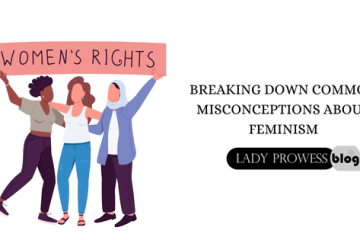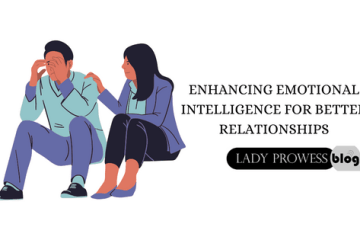Effective Communication Skills for Personal and Professional Life
Communication skills is a fundamental part of the human experience and a way to exchange ideas and get in touch with one another. Research has shown that communication skills can be practiced and improved on to aid effectiveness both personally and professionally.
I want you to picture yourself in a Skill Acquisition Workshop taking place in a large hall with a sitting capacity of five hundred people. The hall is divided into two sections, one for practical and the other for the theoretical aspect of the Workshop. The theoretical section has begun, and the Host starts teaching the two hundred participants (of which you are a member). But, he uses ambiguous words and parlance, which are not only foreign to you and most other participants but also difficult to understand.
This results in subdued murmuring and frowns on the faces of most of the participants. Some even lose interest and end up operating their phones, while others shift uncomfortably in their seats, look at their wristwatches, and glance at the exit frequently. But the Host, oblivious to these non-verbal gestures, continues teaching undisturbed.
Read More: The ultimate guide to frugal living and how to save money.
At the end of the theoretical section, the Host asks the participants questions, and when there are none, he’s satisfied that the lecture has been understood and directs the participants to the practical section to implement what has been taught. To his greatest shock and embarrassment, only 10% (20) of participants could practicalize what was taught.
What do you think could be the reason for this? Your guess is as good as mine, “Ineffective Communication” First of all, what is Communication?
Communication
Communication is not simply one person talking and another person or people listening, as people often tend to think. According to Idalberto Chiavento, a Brazilian professor, “Communication is the process of passing information and understanding from one person to another”. It is the process of passing information in the form of thoughts, opinions, and ideas between two or more individuals, groups or corporate bodies to build an understanding through verbal and non-verbal methods.
All communication influences at least two parties- the Sender and the Receiver. Do you know that animals also communicate? Amazing right? Communication is seen as a mechanism used to build and change relationships. Therefore, Communication is only relevant when it is effective.
Effective Communication
Effective communication is the process of exchanging ideas, thoughts, opinions, knowledge, and information to receive and understand the message with clarity and purpose. It is more than just exchanging information. It’s about understanding the emotion and intention behind the information. Other than clearly conveying a message, you need to also listen in a way that grabs the full meaning of what is being said and makes the other party feel heard and understood. When we communicate effectively, both the Sender and Receiver are satisfied.
Effective Communication Skills
Communication skills are abilities that are needed when giving and receiving different types of information. They involve listening, speaking, observing, and empathizing. They define how a person conveys and receives information, interacts with others, and tackles issues such as potential conflicts in the workplace.
Therefore, Effective communication skills are communication skills or abilities that aid effective communication. For communication to be effective, it must be clear, correct, complete, concise, coherent, and courteous. The communication skills needed for Effective communication in personal and professional life include, but are not limited to:
- Active Listening: It is sometimes called Appreciate Listening or Mindful Listening. It entails paying close attention to who you’re communicating with. This includes asking questions, paraphrasing, and just engaging with them generally. Practicing active listening can build respect and increase understanding, not only with your colleagues in the workplace but in your home with your family members.
- Honesty: Though often overlooked, Honesty is a communication skill that everyone should try to incorporate in all aspects of their personal and professional lives. Being honest with your colleagues and supervisors about anything work-related shows that you value transparency. Being honest with your family shows that you trust and respect them. Both cases prove that you are confident and willing to accept your mistakes and take responsibility for your actions.
- Friendliness: Friendliness can help build and foster trust, understanding, and unity when communicating at home and in the workplace. You can practice friendliness by remembering small, thoughtful details about your colleagues, family, or past conversations. Little gestures such as asking how someone is doing, smiling as they speak, or offering praise for a job well done can help foster productive relationships with family, friends, colleagues, or managers.
- Empathy: This communication skill is important in the family and at work. Having empathy denotes your ability to not only understand but also share in the emotions of others. In both cases, you attempt to effectively read and translate other people’s emotions and give an appropriate response.
- Non-Verbal Gestures: Attention to non-verbal gestures such as body language, facial expression, eye or head movements, etc., is extremely important in direct communication. More often than not, direct communication always includes non-verbal gestures, and when you’re listening to someone, paying attention to non–verbal gestures could give you an idea of the other party’s feelings and help prevent conflict and misunderstandings.
- Responsiveness and Feedback: Whether you’re returning a phone call or sending a reply to an email, employers often view fast communicators as more effective than those who are slow to respond. The same family members view members who respond quickly as more reliable than those who don’t.
Learning Effective communication skills is a straightforward process that allows you to express yourself and improve your personal and professional relationships. Knowing how to listen well and communicate clearly will help you express yourself in job interviews, business meetings, and personal life.
Therefore, the importance of Effective communication skills in our personal and professional lives can never be overemphasized.



0 Comments